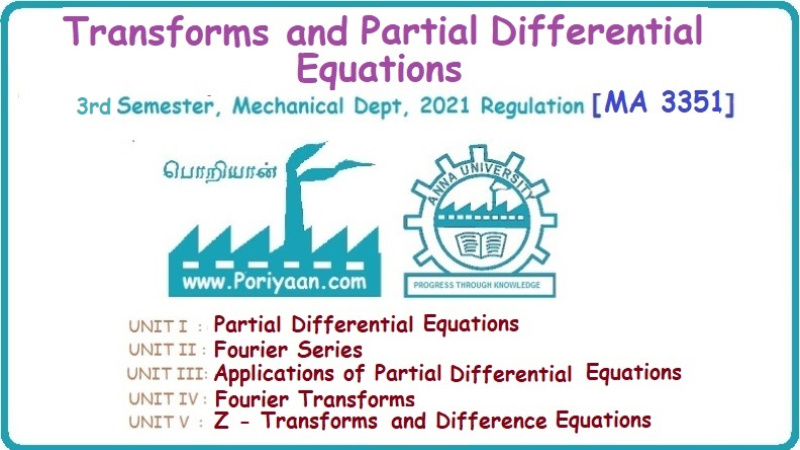Transforms And Partial Differential Equations: UNIT II: Fourier Series
Continuity Of Function
The left hand limit of f (x) at x = a is defined as x approaches a from the left and is denoted by f (a −). a from the left and is denoted by f(a-)
§ CONTINUITY OF A FUNCTION:
The left hand limit of f (x) at x =
a is defined as x approaches a from the left and is denoted by f (a −). a from
the left and is

The right hand limit of f (x) at x
= a is defined as x approaches a from the right and is denoted by f (a +)

A function f(x) is said to be
continuous at x = f (a) = f (a) = f (-a)
Note:
1. ƒ(a) is different from ƒ (a +) rom ƒ (a +) and ƒ (a −), ƒ (a) means the
value of f (x) at x = a.
2. If there is a finite jump in the
graph of y = f (x) at x = a, the function is not continuous at x = a. (i.e.,)
The function is not defined at x = a.
In such cases, both right hand and
left hand limits are not equal. The function f(x) is piecewise continuous in an
interval (a, b) means that f(x) is continuous at all, but a finite number of
points in (a, b).

§ ADVANTAGES OF FOURIER SERIES :
1. Discontinuous function can be
represented by Fourier series, although derivatives of the discontinuous
functions do not exist. (This is not true for Taylor's series).
2. The Fourier series is useful in
expanding the periodic functions, since outside the closed interval, there
exists a periodic extension of the function.
3. Expansion of an oscillating
function by Fourier series gives all modes of oscillation (fundamental and all
overtones) which is extremely useful in physics.
4. Fourier series of a
discontinuous function is not uniformly convergent at all points.
5. Term by term integration of a
convergent Fourier series is always valid, and it may not be valid if the
series is not convergent. However, term by term, differentiation of a Fourier
series is not valid if the series is not convergent.
Transforms And Partial Differential Equations: UNIT II: Fourier Series : Tag: : - Continuity Of Function
Related Topics
Related Subjects
Transforms and Partial Differential Equations
MA3351 3rd semester civil, Mechanical Dept | 2021 Regulation | 3rd Semester Mechanical Dept 2021 Regulation
